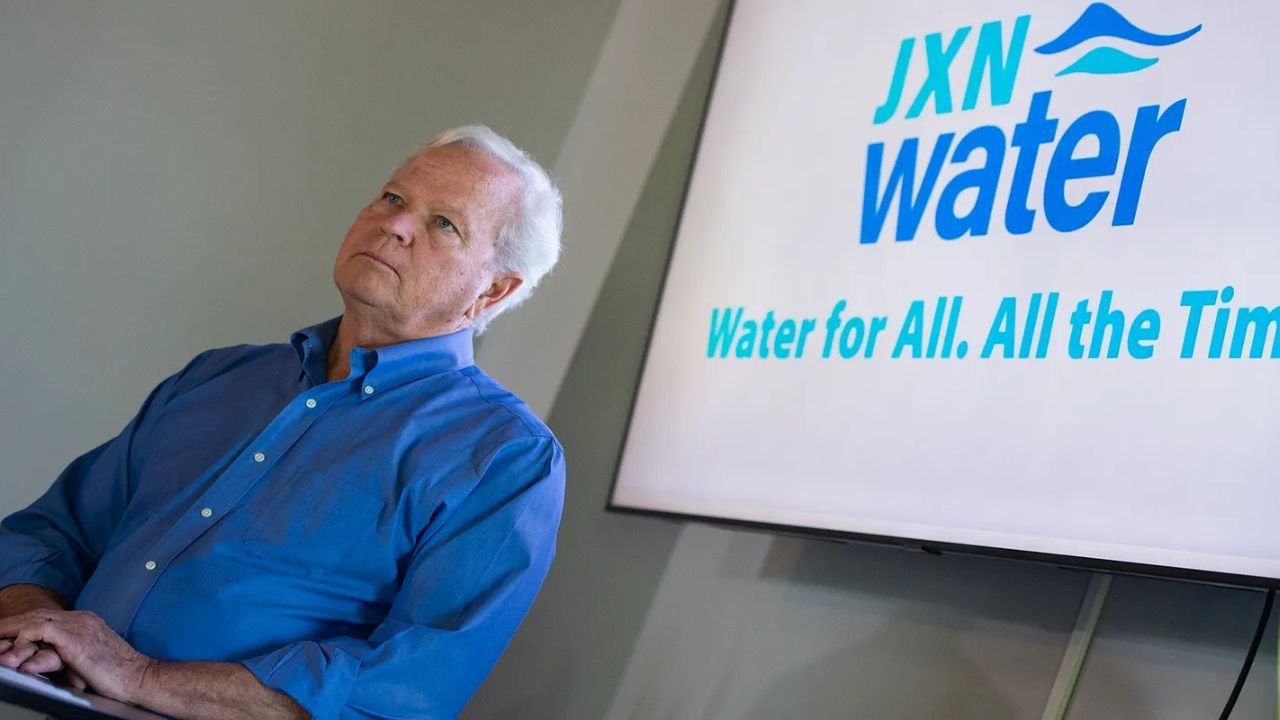During the most recent Jackson Housing Task Force gathering, a striking but vague statement prompted several reporters to pull out their phones and start recording. Brian Burns, the attorney leading the committee, claimed that about 9,000 Jacksonians are living in rental homes whose owners owe overdue water bills. This figure suggests a potentially large number of people may face water shutoffs as private utility JXN Water intensifies efforts to address delinquent accounts.
However, the remark lacked crucial detail: what types of properties are involved? How many complexes? Which ones, and where? What are the amounts owed per building?
Committee Pushback and Requests for Clarity
Some task force members questioned the accuracy of the number. “Do you think 9,000 is the number? Like we’re having a crisis with 9,000 tenants?” asked Jennifer Welch, a local property manager and co-chair of the task force. “Because we haven’t really said that number.”
Subsequently, members were informed that JXN Water had issued final notices to four apartment complexes for past-due bills. These notices represent one of the last steps before service is cut off if the owner doesn’t pay within 21 days. Yet, JXN Water’s representative, Carla Dazet, did not disclose which complexes received those notices.
Although fewer than 1,000 residents live in those four complexes, both Burns and Welch declined to reveal their identities after the meeting:
“We are not releasing that information,” Welch said. “If you would like to know that, you should contact JXN Water.”
When approached, JXN Water spokesperson Aisha Carson did not respond to inquiries. Because the private operator managing the city’s water utility is not subject to the Public Records Act, administrator Ted Henifin has been selective about sharing information with the public.
Past Water Shutoffs and Relocation Efforts
This summer, water was shut off at apartment complexes whose landlords had owed more than $200,000 overall in back bills, displacing some tenants. Jackson’s Mayor, John Horhn, had formed the task force in part to coordinate relocation assistance for displaced residents.
Some task force participants expressed optimism that the owners of the four unnamed complexes would settle their accounts to prevent further disruptions. During the meeting, Victoria Love, manager of the city’s rental registry, disclosed that one of the complexes was federally funded with 156 units and three vacant spots; the other properties were market-rate. “With Blossom Apartments being the example, I don’t feel like owners will press their luck,” Love noted.
Shortly afterward, the group voted to enter executive session. Under the Open Meetings Act, such a session allows public bodies to restrict access when discussing matters like prospective litigation, personnel, or private business matters.
Welch stated the task force would review a “delinquency sheet” but insisted she did not know the identities of the four complexes. “We do not know the answer to that,” she said before the meeting’s closed portion. “We are going to go into executive session to discuss that.”
When two reporters asked why the session was called, city spokesperson Nic Lott responded that the task force was tackling “ongoing policy issues” — a justification not included in the Open Meetings Act. Lott later told reporters that although he agreed the act applied to the housing task force, “our lawyers tell us that we don’t have to say anything about executive session.” He added, “We’re told that we don’t have to reveal the discussion of the executive session.”
During the closed meeting, reporters overheard via a Zoom feed a participant ask: “Why not invite Ted to answer some questions?” Afterward, Lott asked reporters to wait in the lobby, citing concerns that the Zoom content could be heard outside the room.
When the meeting concluded, Burns stated the executive session had covered “strategy related to the housing issue … water shutoff and humanitarian issues.” “If you displace Jackson residents out of apartment complexes, that is extraordinary,” he said. “So we’ve got to have the funding to help some of those people.”
Welch estimated that around 600 people might be affected, though she deferred most questions to JXN Water:
“It’s such a large, complicated problem that there are not great solutions with 600 people who are going to be affected from a lack of water … whatever the number might be at these supposed four apartment complexes.”
Next Steps and Scope of the Problem
The task force is in the process of reviewing JXN Water’s tenant notification policies, which include posting signs at affected properties, according to Welch. Burns added that if another complex were to lose service, the city plans to seek federal funds through HUD to assist tenants relocating to apartments with functioning water. He expressed confidence that a federal government shutdown would not impact the disbursement of those funds.
While the task force’s current focus is on the complexes with the biggest financial liabilities, Burns noted that over 80 rental properties — from multifamily buildings to duplexes and single-family homes — are carrying past-due water bills.
Conclusion
The Jackson Housing Task Force’s meeting exposed a stark figure — 9,000 renters living in units tied to landlords with delinquent water accounts — but also underscored a lack of transparency surrounding which complexes could be targeted for water shutoffs. With executive sessions invoked and identities withheld, local officials and advocates remain uncertain about who exactly stands to be hardest hit. The task force is now grappling with balancing confidential deliberations and public accountability while pushing for resources to assist potentially displaced residents. As the utility enforcement intensifies, clarity, communication, and strategic funding solutions will be crucial to protect those in jeopardy.
Frequently Asked Questions
What does it mean when a complex receives a “final notice” from JXN Water?
A final notice means a property owner has been given a last chance — typically a 21-day window — to pay past-due water bills before utility service can be shut off.
Why didn’t the task force disclose the identities of the affected complexes?
Task force members, citing confidentiality and legal advice, declined to release names. The utility operator, JXN Water, is not bound by the Public Records Act, limiting public access to that information.
How many people are at risk of water shutoffs in Jackson?
While Burns initially cited 9,000 residents living under potentially delinquent landlord arrangements, Welch estimated that about 600 individuals could be directly impacted by water loss at four complexes.


